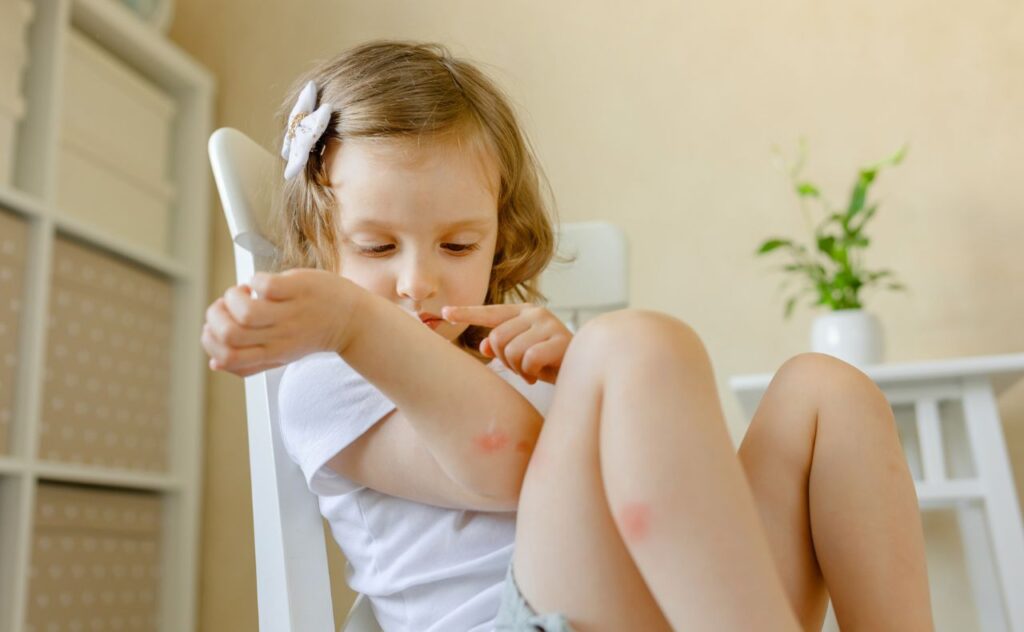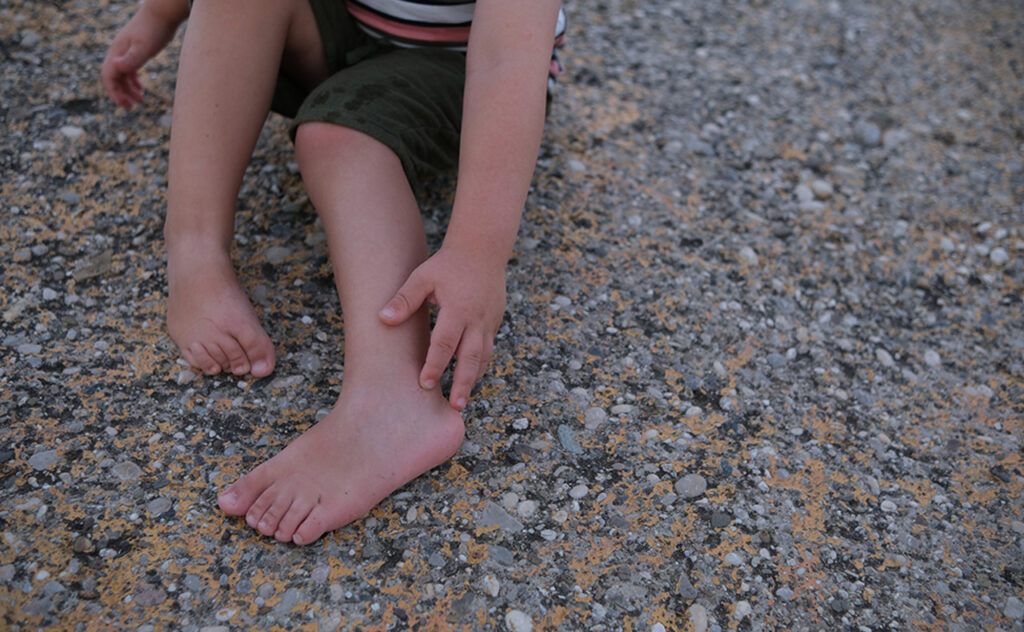Mosquitoes and how to protect your family against bites, itching and potential viruses

Wet weather and warm temperatures make the perfect breeding ground for mosquitoes.
Every summer is a constant battle between wanting to sit outside with the family or go back inside to escape the barrage of mosquitoes that are silent assassins on a warm summer’s evening.
For some, mosquitos and their dreaded ‘bzzz’ are the worst part about summer and in 2023 it’s no exception, with wetter and warmer conditions creating ideal breeding conditions for the annoying insects.
With families facing an increased risk of exposure to mosquitoes and their bites, we thought we’d break down what that means and how you can best protect your family against a summer of swatting, itching or potential viruses.
A bumper season of mosquitoes
Unfortunately, mosquitoes love the warm weather just like us. Due to mosquitoes’ cold blooded nature, they generally become active when temperatures reach 10 degrees and even more so after temperatures hit 26 degrees and above.
The other element mosquitoes need to thrive is water. Mosquitoes lay their eggs in or around stagnant water. This could be water in ponds, backyard plant containers, clogged gutters, floodplains, wetlands or even your front yard bird bath, giving them plenty of opportunities to multiply.
Stagnant water sources created as a result from the wetter weather, the breeding conditions are really primed for a bumper mosquito season.

Why mosquitoes are more than annoying
With more mosquitoes buzzing around than normal, the risk of catching a mosquito-borne disease is much greater, and Ross River is one of the most common viruses that you can catch in Australia.
There are warnings almost every summer about Ross River virus, but it’s more likely that you’ve heard about it and the associated symptoms from a friend or family member who may have suffered from the disease themselves. So, what is it and what damage can it do?
Spread through the bite of an infected mosquito, Ross River virus is a viral infection that can potentially go undetected for months, before more serious symptoms are felt including fever, muscle tenderness, rashes or chronic fatigue. These symptoms can last for weeks or months at a time, making it incredibly hard to diagnose.
While there is no specific treatment for the Ross River virus infection, your doctor will be able to advise you on medications that will help ease the discomfort of symptoms.

Easing irritation and scarring
Those less prone to bites than others are often considered the lucky ones, putting it down to an undesirable blood type, body odor or temperature, however mosquitoes don’t discriminate when it comes to their victims.
It’s more often the case that those who think they’re not getting bitten actually are, however are less prone to have a reaction to the mosquito’s poison, not less prone to the bite itself.
Additionally, excessive itching can cause scarring so make sure you’re supporting your family by taking the appropriate steps to limit discomfort and irritation on the skin from nasty bites.
If bitten, wash the area well and apply a topical treatment like calamine lotion to help reduce itching and inflammation. Alternatively wrap an ice pack in a towel or a cool face washer to reduce pain and swelling.

Easing irritation and scarring
Those less prone to bites than others are often considered the lucky ones, putting it down to an undesirable blood type, body odor or temperature, however mosquitoes don’t discriminate when it comes to their victims.
It’s more often the case that those who think they’re not getting bitten actually are, however are less prone to have a reaction to the mosquito’s poison, not less prone to the bite itself.
Additionally, excessive itching can cause scarring so make sure you’re supporting your family by taking the appropriate steps to limit discomfort and irritation on the skin from nasty bites.
If bitten, wash the area well and apply a topical treatment like calamine lotion to help reduce itching and inflammation. Alternatively wrap an ice pack in a towel or a cool face washer to reduce pain and swelling.

How can you protect your family?
So that you and your family can enjoy the most of the outdoors this summer, here are some handy tips on how to stay protected from mosquitoes and the poisons they carry:
- Cover-up with loose fitting, long-sleeved clothing – but keep in mind that mosquitoes can bite through clothing.
- Apply an effective mosquito repellent to exposed skin – go for a product that offers long lasting protection and is sweat and water resistant.
- Take special care during peak mosquito biting hours, especially around dawn and dusk.
- Remove potential mosquito breeding sites from around the home.
- Ensure your windows and doors have adequate fly screens installed or use a bed net if this isn’t possible.
- Take extra precautions when travelling or camping in areas with a higher risk of mosquito-borne diseases. Make sure to check the Australian Smart Traveller website or your local council for further information.




